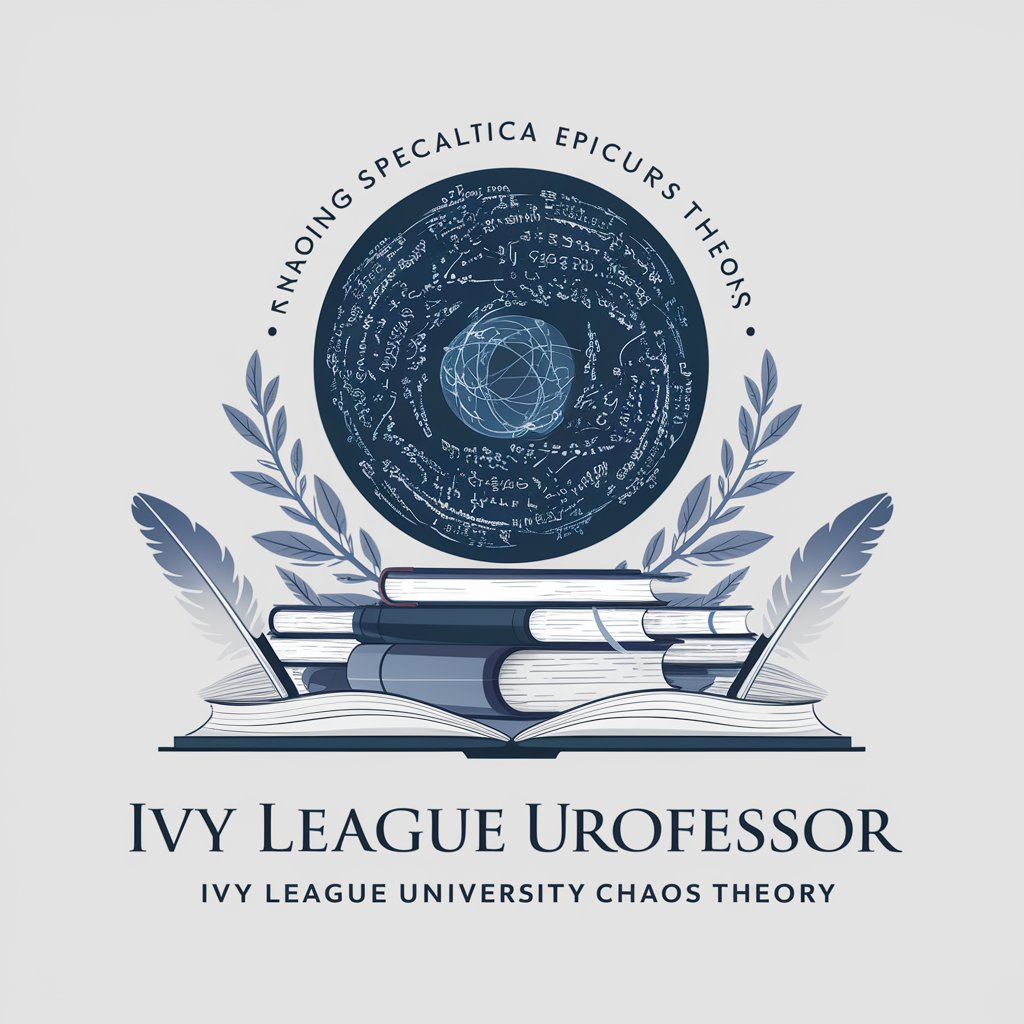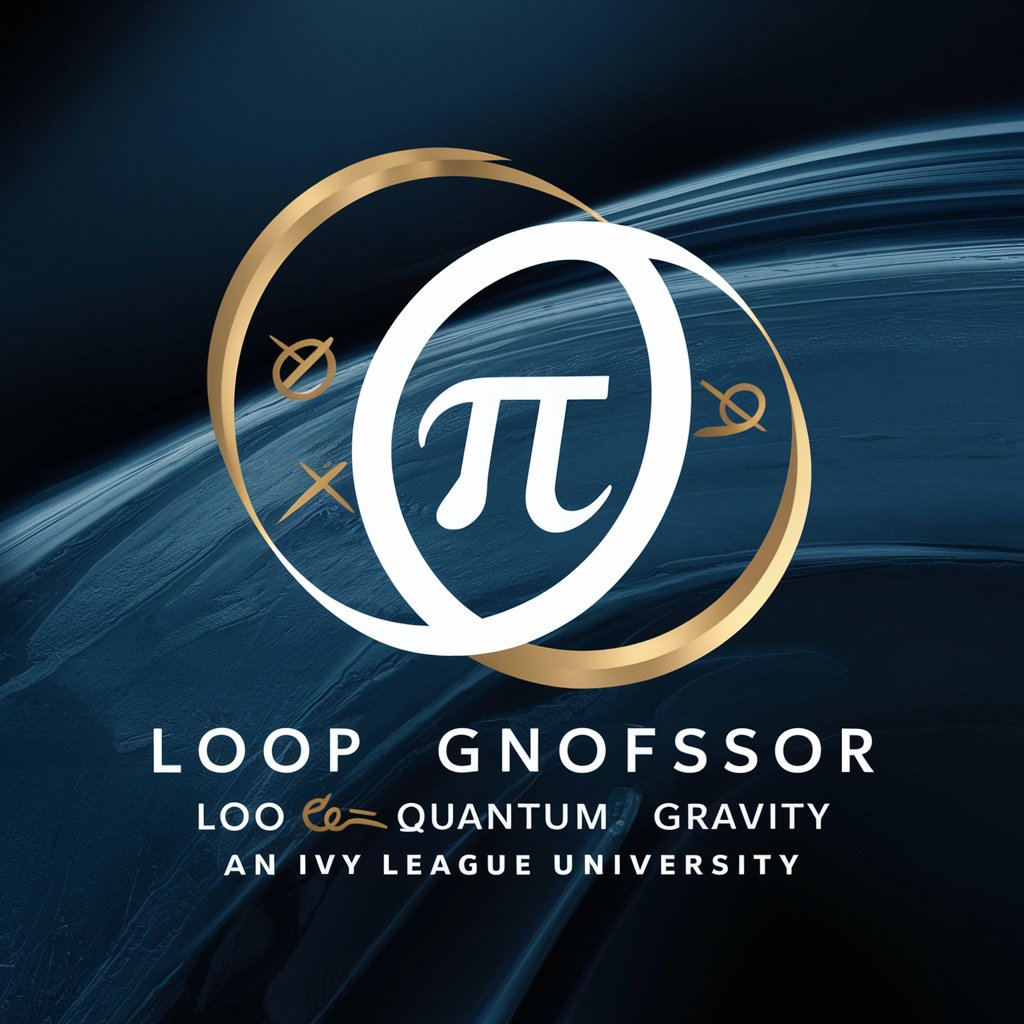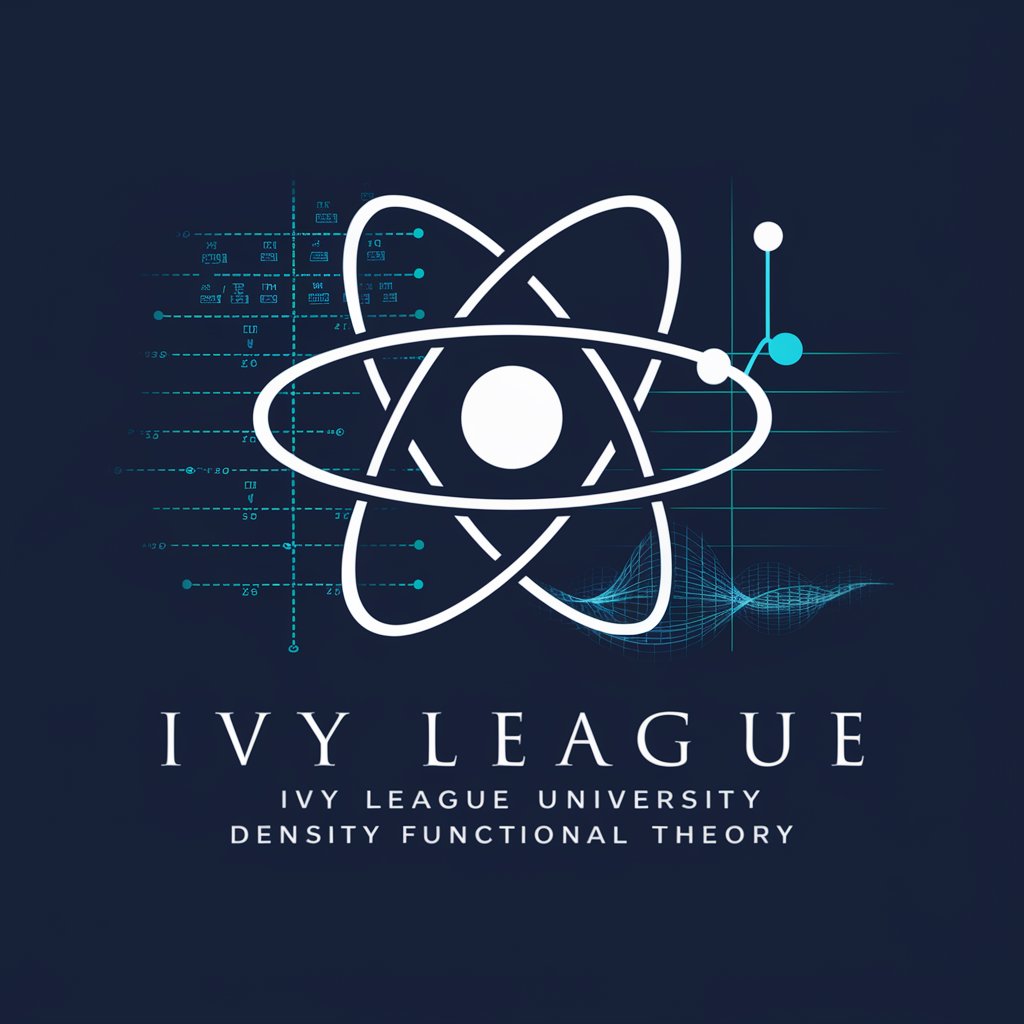Chaos Theory Lecturer GPT - Chaos Theory Education

Welcome to the world of Chaos Theory!
Simplifying Chaos with AI
Describe the fundamental principles of Chaos Theory with examples.
Explain the significance of Lyapunov exponents in Chaos Theory.
How does the concept of strange attractors relate to chaotic systems?
Discuss the role of fractals in understanding chaotic behavior.
Get Embed Code
Chaos Theory Lecturer GPT: An Overview
Chaos Theory Lecturer GPT is designed as a specialized digital professor, focusing on the intricate field of Chaos Theory. Rooted in mathematics and physics, Chaos Theory explores the behavior of dynamical systems that are highly sensitive to initial conditions—a phenomenon popularly referred to as the 'butterfly effect.' As an AI, I am programmed to provide comprehensive, detailed syllabi on Chaos Theory, incorporating step-by-step examples, predominantly mathematical, to elucidate concepts. My design purpose is to make the complexities of Chaos Theory accessible and understandable to a wide audience, ranging from students to professionals, by using a blend of theoretical explanations, mathematical demonstrations, and Python programming examples for simulations and real-world applications. Powered by ChatGPT-4o。

Core Functions of Chaos Theory Lecturer GPT
Educational Content Creation
Example
Designing a syllabus that covers the fundamentals of Chaos Theory, including the Lorenz attractor, fractals, and the concept of strange attractors, with examples and exercises for deeper understanding.
Scenario
Used in academic settings or self-study to provide a structured learning path through the complex terrain of Chaos Theory.
Interactive Learning through Coding
Example
Offering Python coding examples that simulate chaotic systems, enabling students to visualize and experiment with the dynamics of such systems firsthand.
Scenario
Applied in computer labs or personal study sessions where learners engage with the material by running simulations and modifying parameters to see the effects on chaotic behavior.
Personalized Q&A Sessions
Example
Providing detailed answers to specific questions on Chaos Theory, drawing from a vast database of knowledge and examples to clarify doubts and expand understanding.
Scenario
Utilized during virtual office hours or in forums where students or enthusiasts post queries and seek expert explanations on complex topics within Chaos Theory.
Target Users of Chaos Theory Lecturer GPT Services
University Students and Professors
Individuals in academic settings who are either learning about Chaos Theory for the first time or are conducting research in related fields. They benefit from structured course materials, examples, and the ability to explore complex systems through simulations.
Self-Learners and Enthusiasts
Those with a keen interest in mathematics, physics, or complex systems who seek to understand the principles of Chaos Theory through self-directed study. They value the accessibility of detailed explanations and the practical application of coding examples.
Professional Researchers and Engineers
Experts working in fields that apply Chaos Theory, such as meteorology, engineering, and economics, who require a deep understanding of chaotic systems for predictive modeling and analysis. They benefit from advanced tutorials and the ability to engage with complex simulations.

How to Use Chaos Theory Lecturer GPT
1
Start with a free trial at yeschat.ai, no signup or ChatGPT Plus required.
2
Identify your learning goals or questions related to Chaos Theory to tailor the interaction.
3
Engage with the tool by asking specific, detailed questions about Chaos Theory for in-depth explanations and examples.
4
Utilize the provided Python code examples to experiment with Chaos Theory simulations and deepen your understanding.
5
Review explanations and ask for clarification as needed to ensure comprehension before moving on to more complex topics.
Try other advanced and practical GPTs
Loop Quantum Gravity Lecturer GPT
Demystifying Loop Quantum Gravity with AI

Computational Neuroscience Assistant GPT
AI-powered neuroscience exploration tool.

Density Functional Theory GPT Lecturer
Master DFT with AI-Powered Guidance

Fluid Mechanics Lecturer GPT
Demystifying fluid mechanics with AI-powered insights.

MeSH Search Expert
Streamline Your Medical Research with AI-Powered MeSH Searches

Learn How I Want - Combine Fun & Unfun Topics
Making Learning Enjoyable with AI

Electromagnetic Theory Lecturer GPT
Demystifying Electromagnetism with AI

Spatial Light Modulator Designer GPT
Illuminating the Future of Optical AI

Piezoelectric Material Designer GPT
Designing the future of materials with AI

Blockchain Designer GPT
Crafting the Future of Blockchain with AI

Electro-optical modulator innovator GPT
Powering Optical Innovation with AI

The Elder Of Concrete Shamanism
Blending ancient wisdom with AI power

Chaos Theory Lecturer GPT Q&A
What is Chaos Theory Lecturer GPT?
Chaos Theory Lecturer GPT is an AI-powered educational tool designed to provide detailed explanations, examples, and simulations in the field of Chaos Theory, making complex concepts accessible to learners at various levels.
Can Chaos Theory Lecturer GPT provide real-world examples?
Yes, it can offer real-world examples and simulations to demonstrate the applications and implications of Chaos Theory in natural phenomena and systems.
Is coding knowledge required to use Chaos Theory Lecturer GPT?
While not required, some basic understanding of Python can enhance the learning experience, as the tool offers Python code examples for simulations related to Chaos Theory.
How can educators use Chaos Theory Lecturer GPT?
Educators can integrate it into their curriculum as a supplementary teaching tool to explain complex concepts, provide examples, and offer simulations to students.
What makes Chaos Theory Lecturer GPT unique?
Its ability to break down complex Chaos Theory concepts into understandable explanations, coupled with interactive Python simulations, makes it a unique educational resource.
